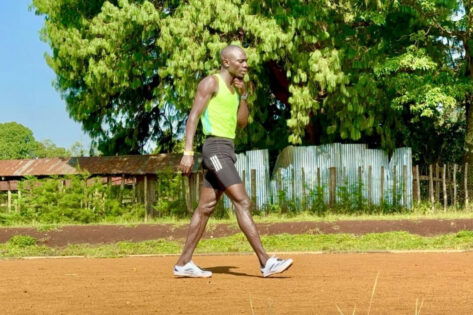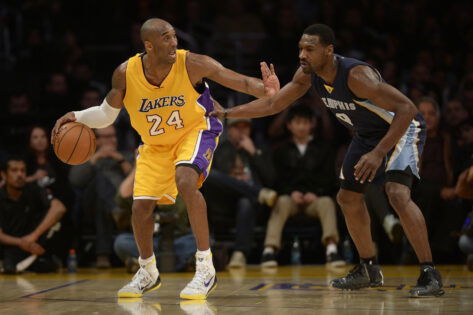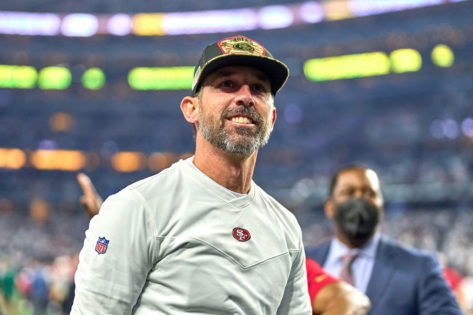‘Should I have made this choice? I love this sport, but I’m suffering financially. I’m suffering mentally trying to make a living in this sport.’ These were the words of Michael Johnson just weeks ago. He was voicing the challenges faced by many athletes in track and field and the questions they ask. For years, financial instability has remained a recurring issue across the sport, prompting discussions around sustainability for professionals. And what came next?
So, Johnson decided to do something about it and launched Grand Slam Track, a new league offering athletes a shot at $12.6 million in prize money spread across four events throughout the year. The $30 million league, which made its debut on 4 April, contracted Forty-eight athletes (racers) who will each earn annual pay, while the prize money ranges from $100,000 for a win to $10,000 for last place! With real money now on the line, storylines were bound to emerge. and one already has…
For a Kenyan athlete, this debut might have just flipped the script! Just a few months ago, Emmanuel Wanyonyi lit up the track in Paris, winning an Olympic gold in the 800m with one of the fastest times ever. And now? He did something as special, but on a whole different stage. Wanyonyi became the first overall winner in the short-distance category (1500m, 800m) of the brand-new Grand Slam Track league!
The 20-year-old’s journey through the Grand Slam started with a surprise in the 1500m. Wanyonyi, who is known mostly for his dominance in the 800m, few expected him to out-kick Olympic-level 1500m runners. But in a race packed with stars, including Olympic Gold and Silver medallists Cole Hocker and Josh Kerr, Emmanuel Wanyonyi stayed tucked in the mix until the final lap. Then, with just 100m to go, he surged ahead and crossed the line in 3:35.18, a new personal best. That win earned him 12 points.
Next came his signature event, the 800m. Coming off his gold in Paris with the third-fastest time in history (1:41.19), Wanyonyi was up again up against familiar rival Marco Arop. The Canadian world champion pushed hard, but Wanyonyi held strong. He finished second in 1:46.44, picking up another 8 points. With 20 points across both races, Wanyonyi secured the overall middle-distance title and a $100,000 payday.
Marco Arop torches the field leading the 800m from start to finish!
Emmanuel Wanyonyi second in the race to secure the $100K Slam title pic.twitter.com/POpL1Sm3QM
— Travis Miller (@travismillerx13) April 6, 2025
What makes this even more powerful? Just a few years ago, Emmanuel Wanyonyi wasn’t even in school. He was herding cattle in Kenya at age 10, sometimes earning less than $2 a month. Thus, the $ 100k price money would have come up ass a big blessing to him as there were days he worked and didn’t get paid at all. He has seen a rough childhood marked with financial struggles.
Emmanuel Wanyonyi’s financial struggle
Imagine earning less than $2 a month. That was Emmanuel Wanyonyi’s reality. At just 10 years old, he was forced out of school and into the grueling life of a cattle herder in western Kenya. “Life, and looking after cattle as a kid, was tough,” Wanyonyi told BBC Sport Africa. “I thought of quitting the job and going back home but remembered that I would still face the same challenges I was running away from.”
One of eleven children, and his family couldn’t afford exam fees of just 40 Kenyan shillings, which is about 30 cents! If you think that was the only problem, think again. Kenyan also endured exploitation, often going unpaid for labour, yet persisted because at least he had shelter and food. In 2018, tragedy shattered his world when his father died suddenly. “He had just dropped by the school to give me some money to buy running shoes with the payment he got that day,” Wanyonyi explained. “That day, my world fell apart. It was painful, but I didn’t have the luxury of grieving. I had to become the man of the house immediately.”
Without proper running shoes, Wanyonyi often trained barefoot. “If I found shoes, I would train. If not, I would run barefoot in the fields,” he told. When locals mocked his athletic ambitions, his mother, Margaret Nasimiyu, recalled: “I was crying and feeling sad about it, but my boy told me: ‘Don’t cry, mum. One day, I will buy you land, and you will live a good life. ‘” Today, as Olympic champion and Grand Slam Track winner, Wanyonyi reflects: “There is no challenge in life that can shock me.”
The post Struggled With Poverty in Childhood, Michael Johnson Changes Track & Field Star’s Fortune With $30M Event appeared first on EssentiallySports.



